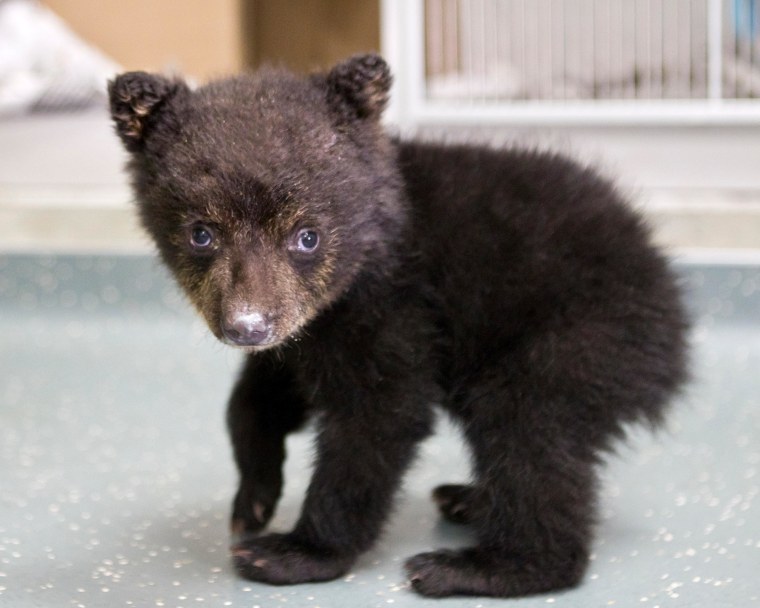
This adorable American black bear cub has been on quite an adventure since an Oregon family took him from the wild in April. Now living comfortably at the Northeastern Wisconsin (NEW) Zoo, he began his journey from Oregon when a family found him, took him home, and then called the Oregon Department of Fish and Wildlife after realizing they had no idea how to care for a wild animal.
Lucky for the 2 1/2-month-old cub, the department quickly stepped in and asked an Oregon Zoo keeper to give him much-needed round-the-clock care. The problem: Having had such care, the young cub would no longer be able to survive on his own in the wild, so a new permanent home had to be found for him.
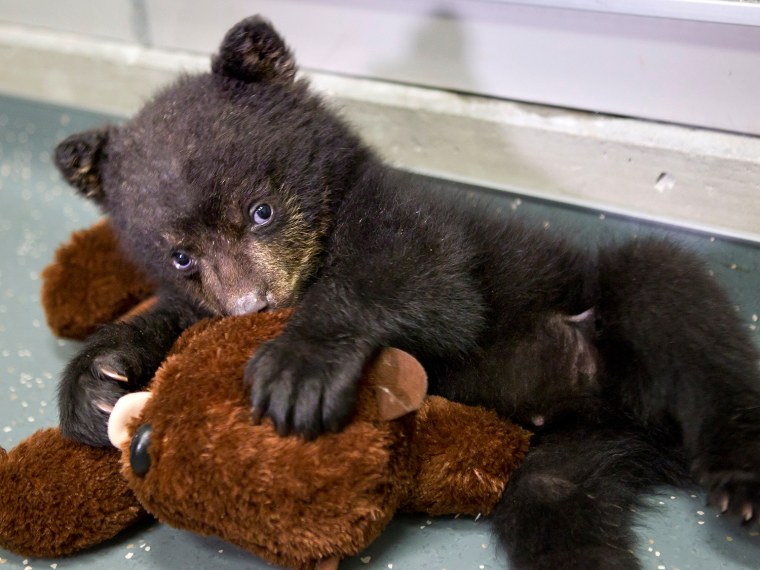
The bear was doing well at the Oregon Zoo, but he couldn't stay: The zoo, which already had four black bears, just didn't have room. That's when the NEW Zoo stepped in at the beginning of May. They were excited by the prospect of a companion for their adult black bear, Winnie.
At the NEW Zoo, the cub was named Aldo and his round-the-clock care was taken over by curator of animals Carmen Murach. At first, Murach took Aldo home to nurse him and help him adjust to a new environment, giving him the chance to bond with a "parental figure." But now he's grown comfortable enough to stay at the zoo at night, as long as he gets constant visits from Murach.
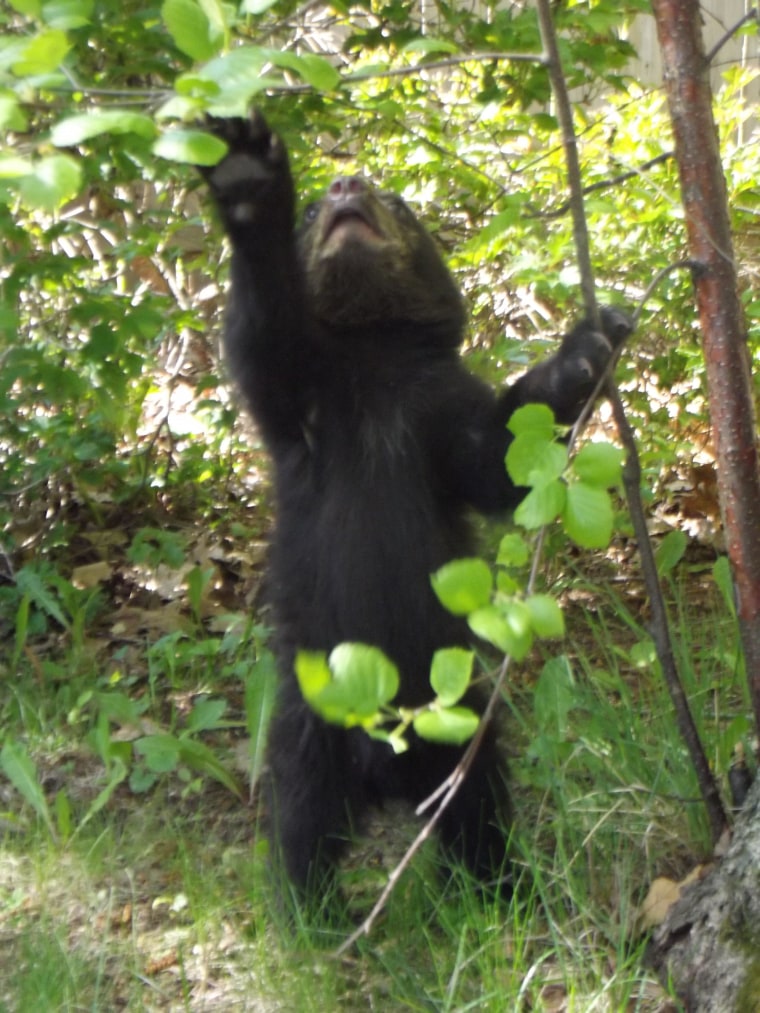
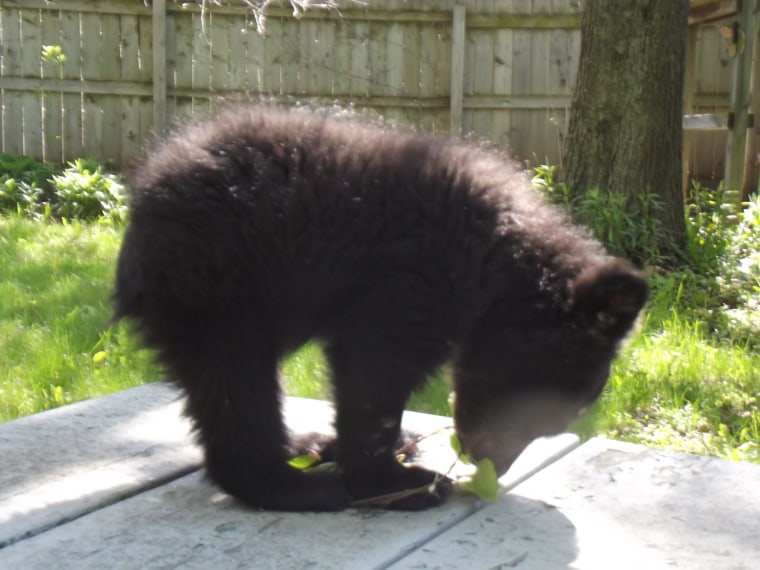
Aldo will have to wait a little longer before he can meet his fellow black bear, though. "Even a slightly annoyed swat from a full-grown bear could do some serious damage to the little cub," Murach explained to TODAY.com. "His real mother could have jumped in between him and other bears to protect him, but I am not up for that challenge!" So the two bears will be introduced to each other slowly over the next month or two.
Aldo's story has a happy ending, but it also serves as an important reminder that wildlife belongs in the wild. According to Murach, most animals people "rescue" from the wild are simply waiting for their parent to return.
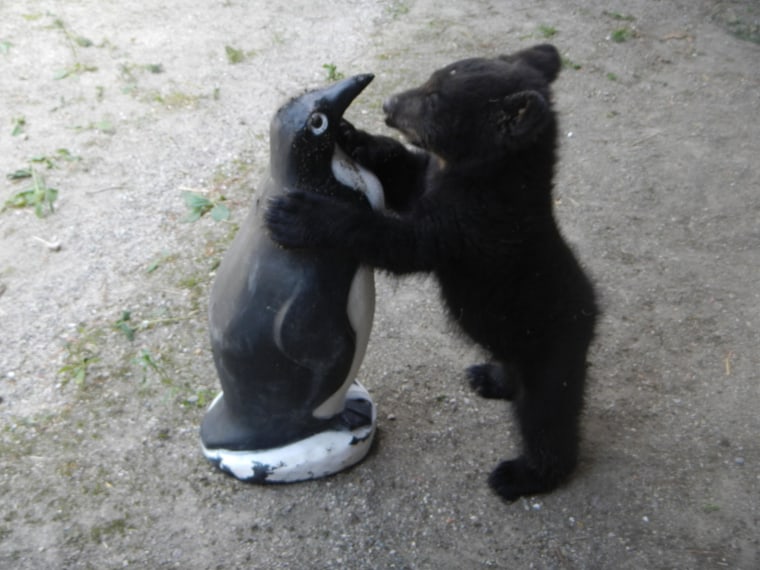
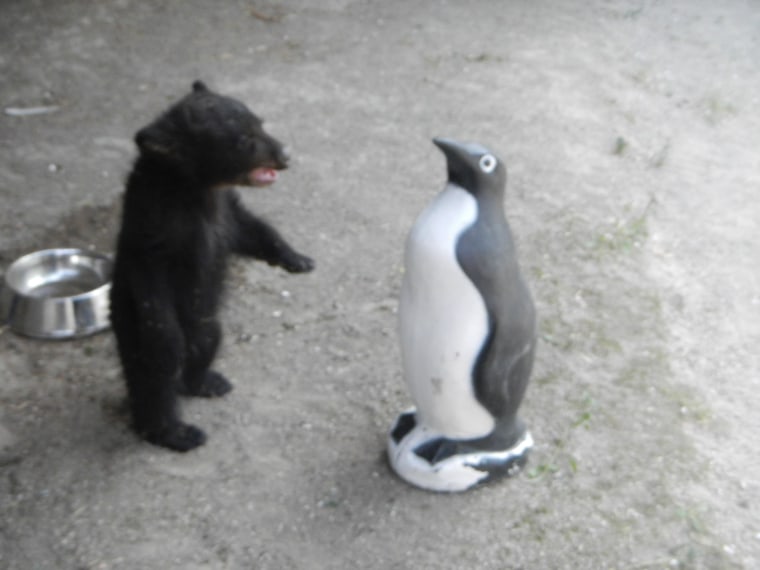
"Most species leave their youngsters alone for long periods – partly to avoid drawing attention to the infants' whereabouts," Murach said. "The fact that they often show no fear of humans is attributable to their inexperience with life – not a need to seek out help. Unless the baby is found next to a dead mother, it most likely is not in need of rescue"
However, if you do suspect an infant wild animal is in need of help, Murach suggests contacting a local wildlife agency so they can further evaluate the situation.
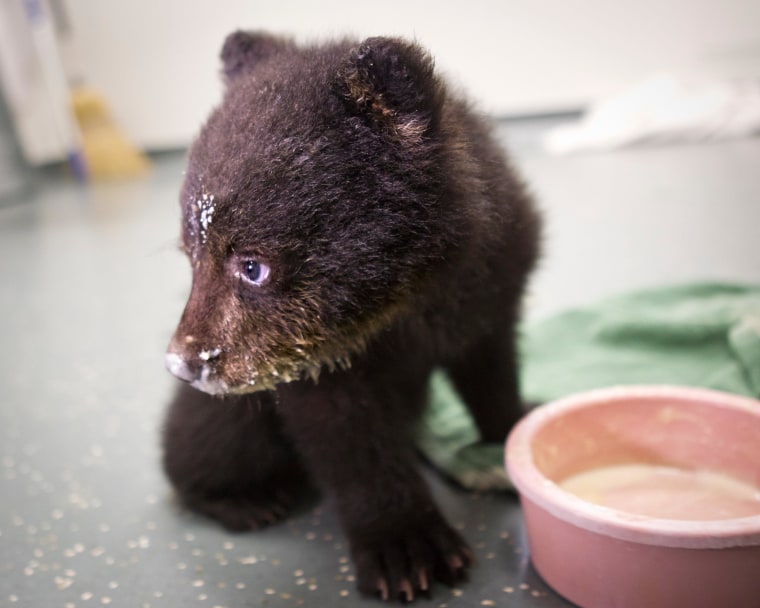
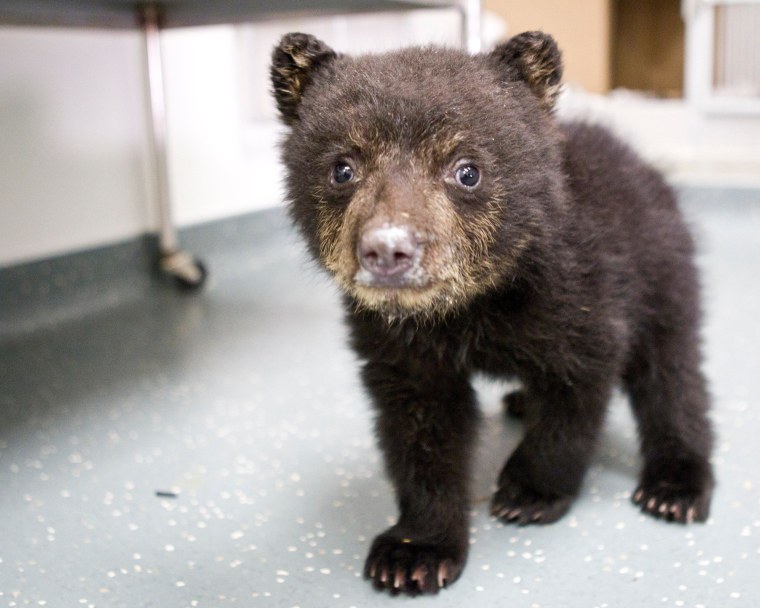
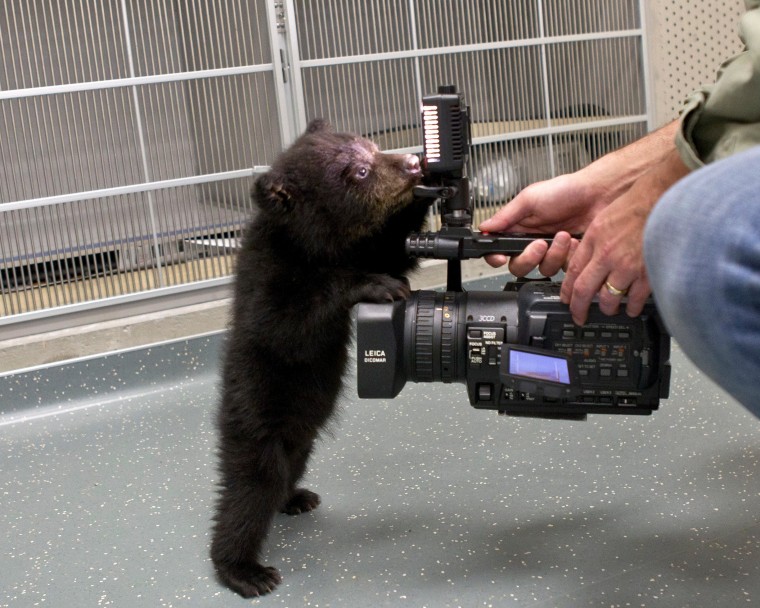
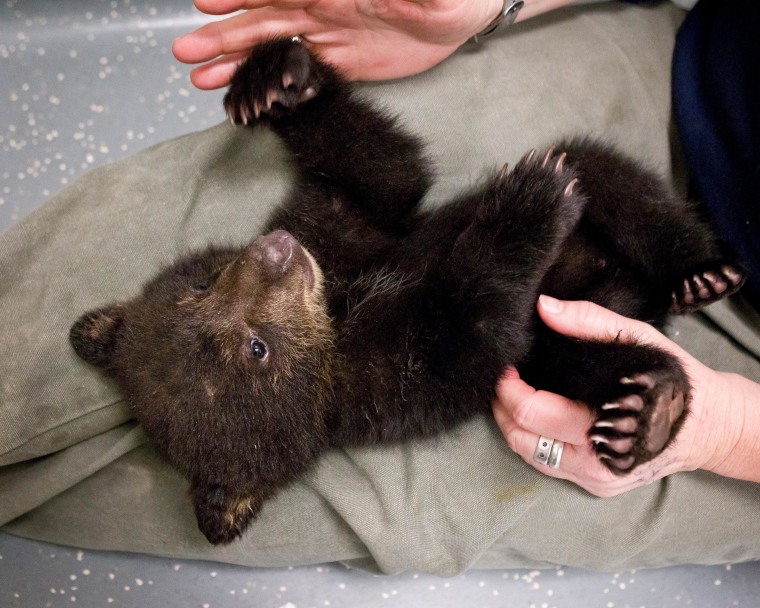
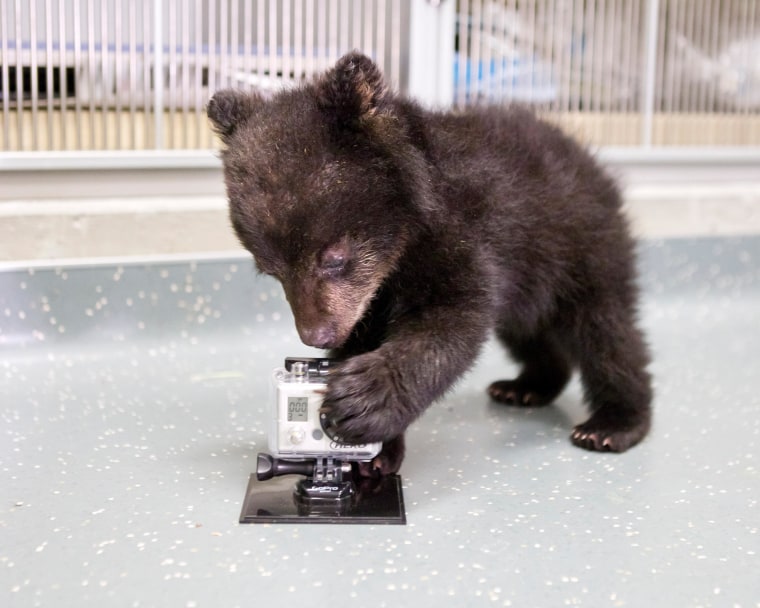
Watch a YouTube video of Aldo's antics at the Oregon Zoo:
More:
- Rare red-legged seriema chick brings smiles to SeaWorld
- Video: Zoo peek-a-boo 'freaks out' twins
- Significant otters: Three North American river otters are born in Brooklyn
TODAY.com producer Lisa Granshaw hopes everyone remembers that while baby wildlife can be adorable, they don't belong in your home. If you want a cute bear, buy a stuffed animal!